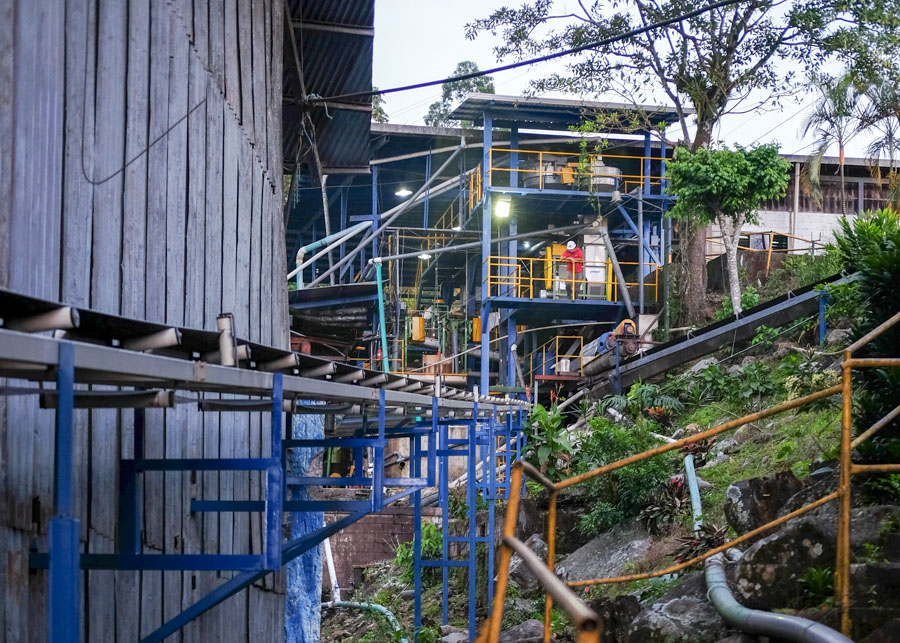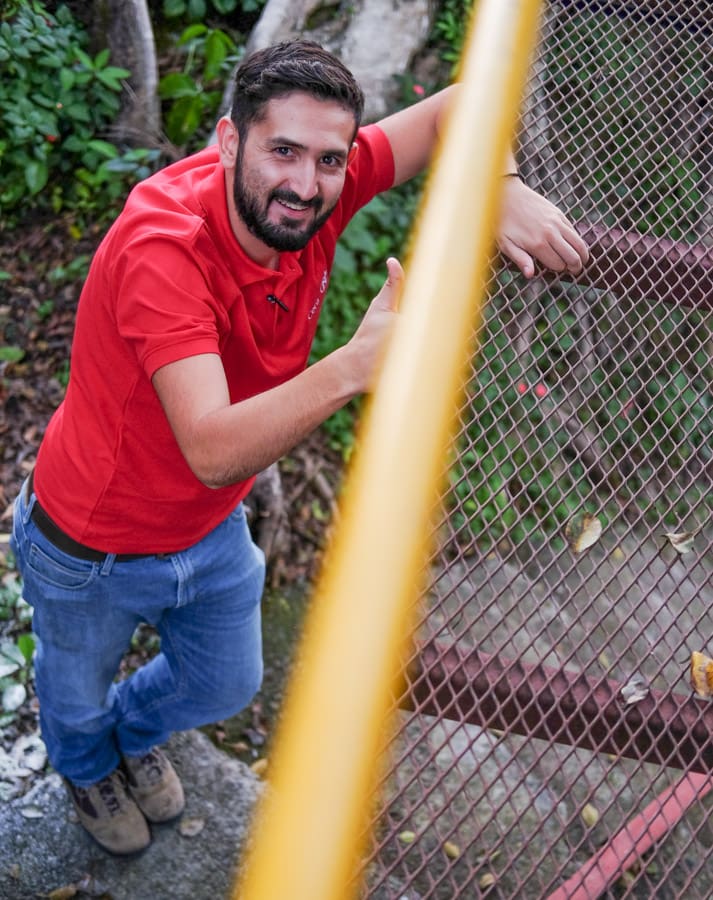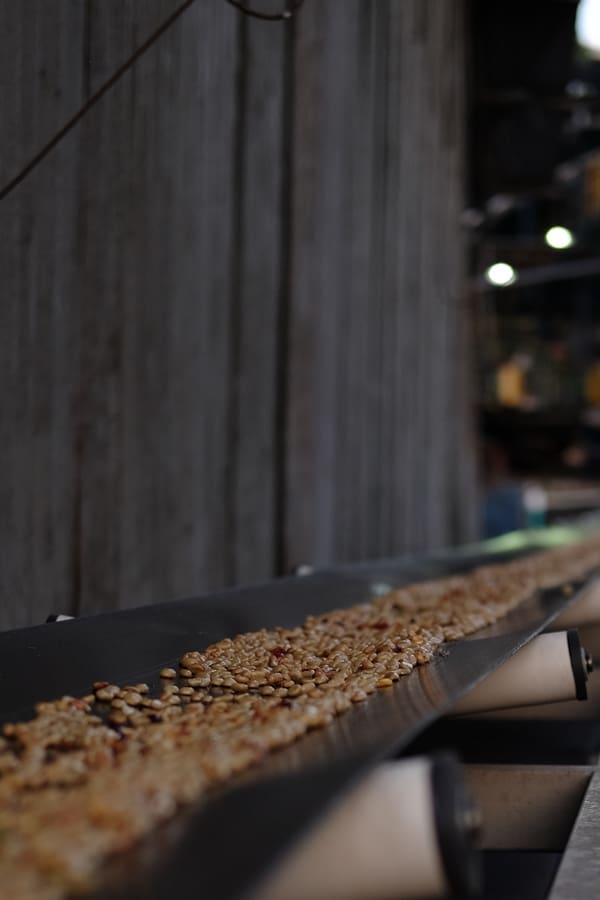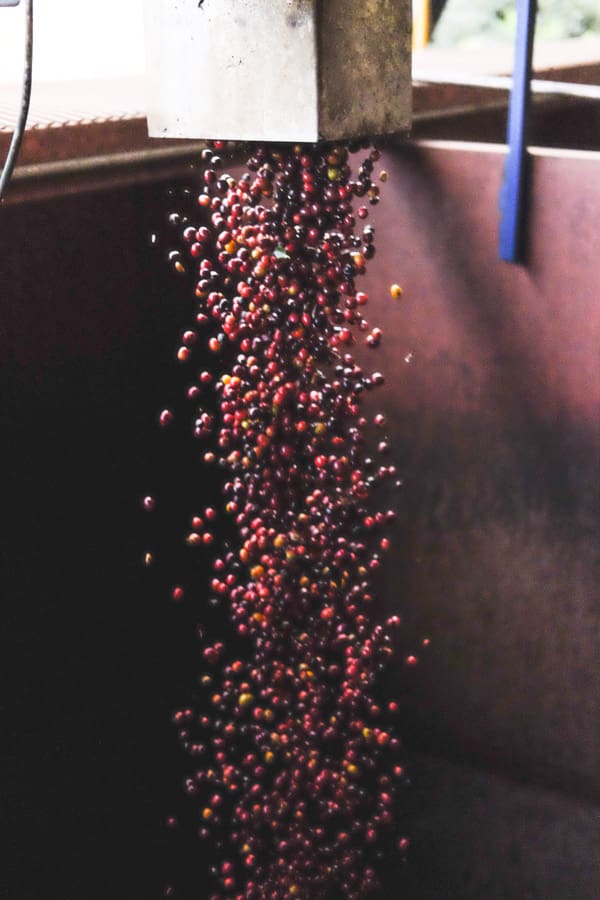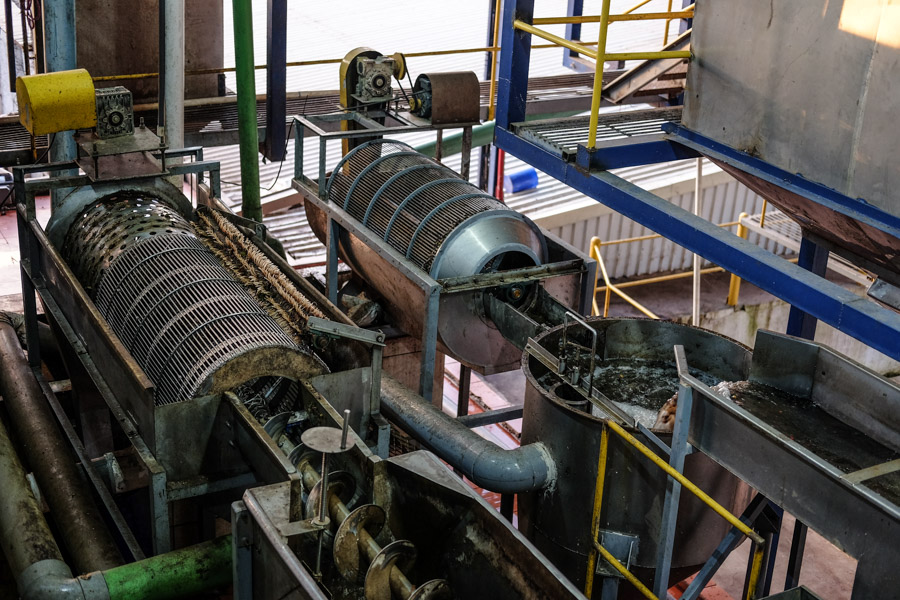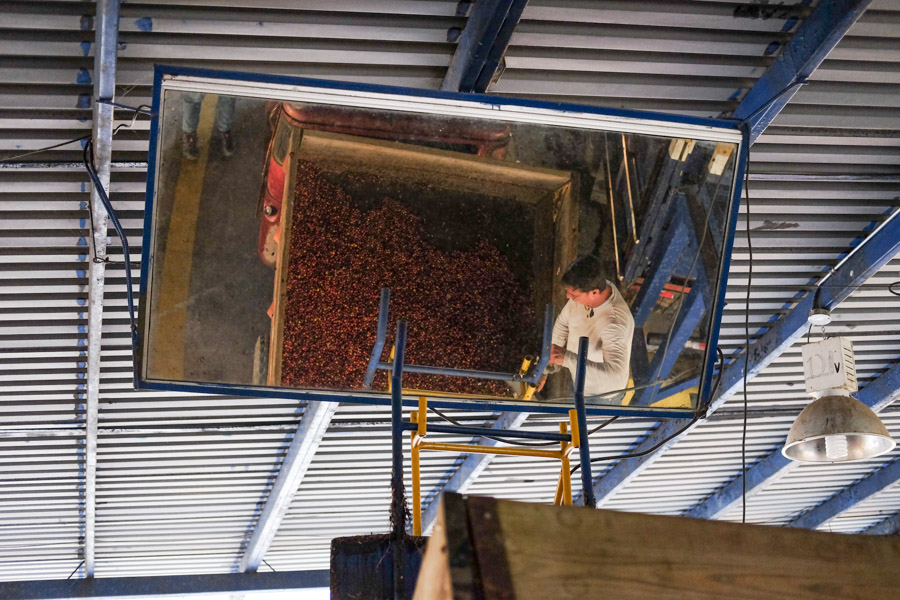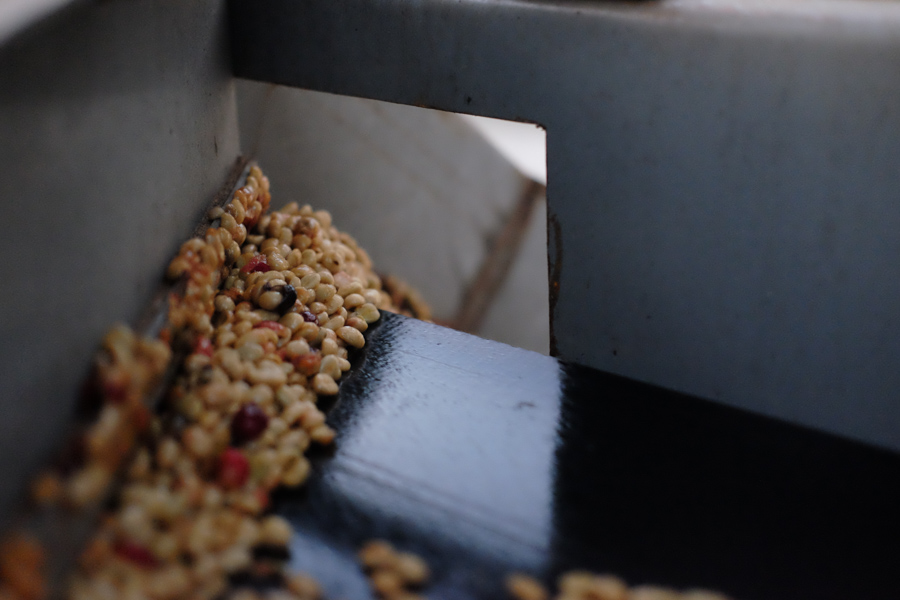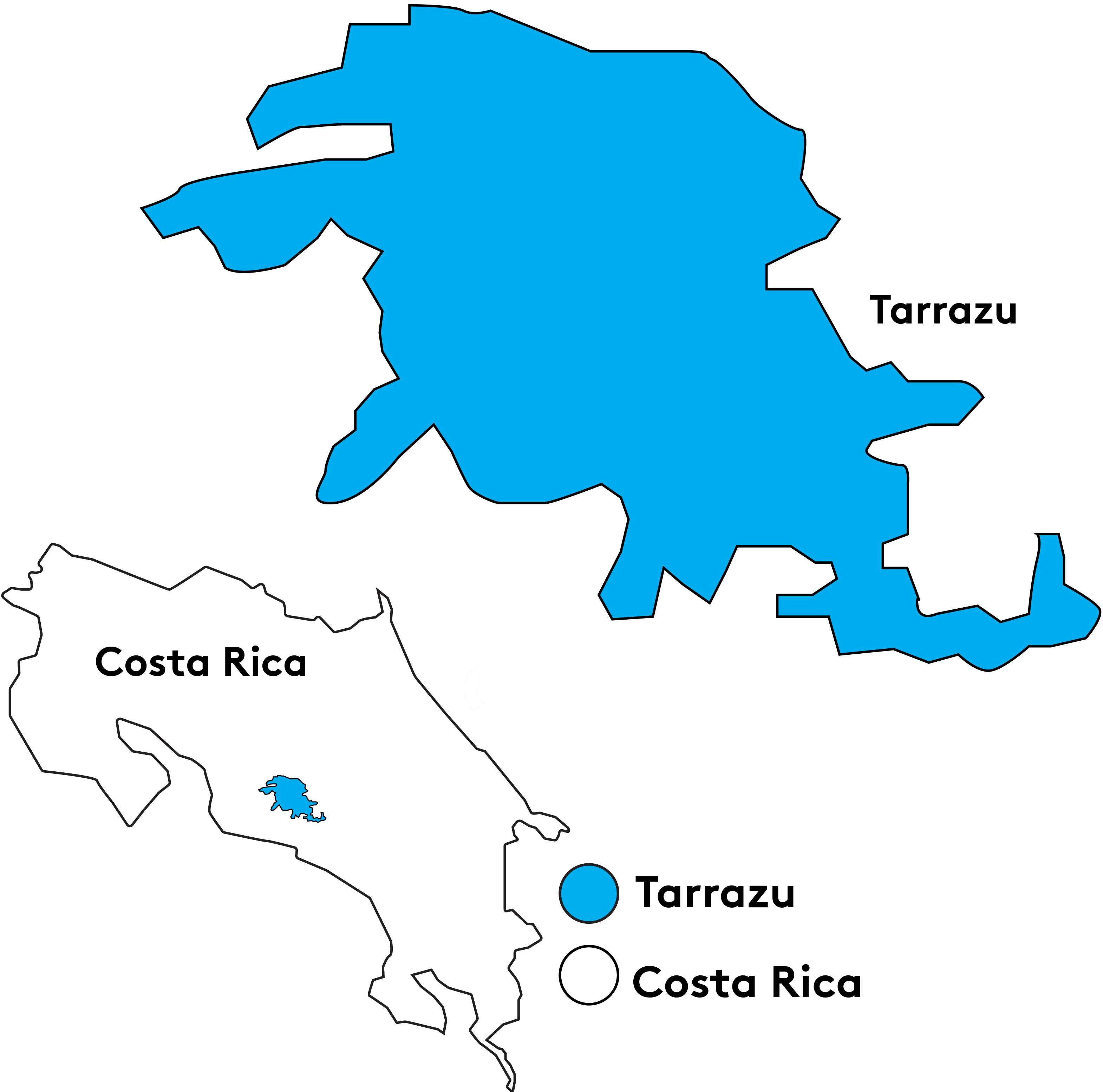The Palmichal wet mill is a community wet mill owned and operated by CECA, one of Costa Rica´s major exporting companies. Traditionally, this mill only processed conventional coffee but in the last five years has adapted itself to serve both specialty coffee producers and roasters. The town of Palmichal is conveniently located in between the Central Valley and Tarrazú regions, which allows it to process coffee from multiple regions.
A big part of Costa Rica’s adaptation to produce for the specialty coffee market has been in the construction of parallel infrastructure; large mills process thousands of kilos of cherry together to produce consistency in large volumes while micromills process microlots one by one to preserve unique flavor profiles. In the case of Palmichal, the construction of an additional hopper and a state-of-the-art demucilagenator for washed processing are the key features of its micromill within its conventional mill.
In the micromill, coffee from select producers is processed separately with 100% traceability. Most of Palmichal’s microlots are Honey processed, bypassing the demucilagenator to leave the sweet mucilage on the bean, and dried on raised beds or in the large mechanical dryers called guardiolas.
Cerro Dragon is one of these special lots. Catuai cherries were fully washed and dried on raised beds then finished in the guardiola for a total of 7-10 days.
